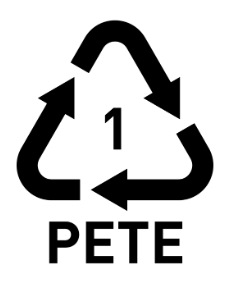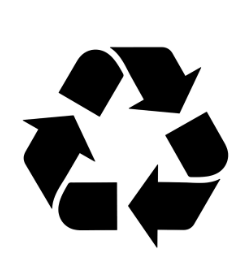Climate Corner: Personal and Corporate Responsibility

Disclaimer: This opinion piece was written by an individual member of our staff and does not necessarily reflect the views of the entire Sustainable Campus office.
The current conversation around climate change often looks to pin the blame on someone: is it our fault, or is it the corporations operating around the globe? The answer isn’t exactly that simple, and pinning the blame too far in one direction may do more harm than good.
We’ve all been guilty of it—whether it's in big conversations on the environment or arguments between friends and family—we often seek out someone to blame. Corporations have been pushing blame off themselves and back on consumers since scrutiny first started to turn their way, and consumers have pushed responsibility back off to the corporations since we first realized we could. No one wants to be blamed, but progress can only be made when each sector takes accountability. Today, we’ll be discussing personal and corporate accountability, some of the history of corporate blame-shifting, and some of the motives behind why individuals push the blame off to systems and corporations, even in their own homes and decisions—and the consequences of this shifting.
Corporate Blame-Shifting
So what do we mean by “corporate blame-shifting”? For the purpose of this discussion, corporate blame-shifting refers to the practice of large corporations such as Coca-Cola and BP putting out media campaigns meant to put the blame for various environmental issues, such as plastic litter, onto the individual consumer, and tasking them with the responsibility of cleanup. This keeps the conversation off of the shoulders of companies, allowing them the appearance of being environmentally conscious without having to invest in potentially costly sustainability practices. One of the better-known examples is the idea of an individual’s “carbon footprint.” This is a term you may have heard before, referring to how many tons of carbon dioxide an individual’s lifestyle emits into the atmosphere on a yearly basis, from washing the laundry to powering the house. You may have even encountered news stories, blogs, or even others telling you to head to various websites to calculate your carbon footprint. However, the push to track this measurement actually comes from BP, the oil company behind the Deepwater Horizon Oil Spill of 2010. The term was first unveiled by the company in 2004, and in now-archived pages you can find articles from 2006 about going on a “low-carbon diet” or even tweets from as recently as 2019 encouraging consumers to calculate their carbon footprint using their newer calculator and pledge to lower their carbon emissions. Though, the tweet was met with backlash due to the company dealing mainly in fossil fuels (and thus having a higher carbon footprint than many of its consumers put together).
There are many other examples that have become household phrases or images and still perpetuate the practice of blame-shifting. Have you ever passed a sign on the highway asking you to “Adopt a Highway” by Keep America Beautiful? Keep America Beautiful is notorious for these kinds of practices, including their infamous “crying Indian” ad campaigns that painted a solemn image of individual plastic litter while the organization was being funded by beverage bottling and packing companies. Both of these examples push the responsibility of plastic litter cleanup onto the consumer and away from the producer distributing mass amounts of the material.
As a final example, we can look at something many of us encounter every day without even realizing it, and often misinterpret. If you look at a plastic water bottle, you’ll often find a small recycle symbol with a number in the center. Here’s the thing: that’s not really a recycling symbol at all. The Plastic Industry Association took the well-known symbol, and since it’s in the public domain, were able to edit it slightly to be a slightly sharper triangle and put the numbers in the center to create “resin codes.” Now, when consumers look at it, we often assume this either means the product has been made from recycled material, or that it is recyclable. All it’s actually telling you is what plastic that item is made out of—of which there are seven types. Some are recyclable with relative ease, while others are extremely difficult, if not impossible, to recycle, but the only thing that changes on the resin code is the number within.


Corporations have spent years and billions of dollars crafting these conversations to keep them out of the spotlight. Because of this, it pays to be cautious of the messaging presented to you, and to continue to hold corporations and systems accountable for how their actions affect the environment. But, this doesn’t mean that we as individuals are entirely free of responsibility. How do we play into all of this?
Individual Sustainability and Accountability
From recycling to turning off the lights when you leave a room, a responsibility to the Earth still falls on our shoulders as individuals and consumers. Individual and systemic action don’t need to exist in a dichotomy, and holistic action requires both to be successful. In the wake of awareness over corporate accountability, some activists have stepped to the other end of the spectrum in ways others warn could be an overcorrection. The conventional mindset is now that “individual behavior change isn’t action—it’s distraction,” as stated by Jay Michaelson, columnist for The Daily Beast.
In retaliation, the argument arises that lack of personal action weakens the foundations of collective action and can lead to performative activism. This isn’t to say guilt and shaming is the way to invite such action, nor is it to say life must become unrecognizable to be environmentally sustainable. We, living in the system we do, inherit a certain unavoidable level of carbon emissions and other environmental impacts that cannot be eliminated until systemic change occurs. We often have to turn on the lights at night, put the heating or air conditioning on when the weather changes, or take showers in the morning before school or work. Shaming others for such actions creates nothing but defensiveness and a further resistance to change or action. However, recycling, taking steps to reduce personal food waste, and reducing energy consumption are more malleable choices that we do have control over. Will they solve the climate crisis alone? No, and we shouldn’t expect them to, nor should taking these actions alleviate the accountability of larger corporations and systems. Personal changes are the foundational statement that your choices matter, even in small ways, and can often be empowering—allowing a sense of control over the little things in our immediate reach.
Why Does It Matter?
What all of this means, in not so many words, is that personal and collective action can be cyclical and self-reinforcing. Taking personal action in your everyday life can empower you to get more involved in advocating for systemic change, which can then motivate further personal action. The two don’t have to, and often shouldn’t, be exclusive of each other on opposite ends of a continuum. In practice, the only way the two practices counteract each other is if we create their opposition. However, we should not, as we act in whatever capacity we are able, shame and guilt those who are not in a position to do the same. There is no productivity in blaming the crisis on those who cannot afford a vegan or vegetarian diet while keeping up with the required nutrient intake, or who live in an area with poorly maintained public transportation that leaves them unable to rely on buses or trains to get to work or school. This is where collective action steps in. Corporations and larger systems have poured resources into pushing the conversation from such action and accountability away from them, and true large-scale changes in support of the environment cannot occur if we allow the blame to entirely fall on our shoulders away from the top corporations with large-scale environmental impacts.
So next time a company like BP asks you to calculate your carbon footprint, don’t be afraid to ask if between the two of you, they’re the ones who should be asking. At the same time, if you can take the bus or bike to work tomorrow, why not give that a try too?
Learn More
Catch up on past Climate Corner blog posts here, and find more information on sustainability at FSU both on a personal and university level at our website here!
References:
Maxine Joselow, E&E News. “Exxon Mobil’s Messaging Shifted Blame for Warming to Consumers.” Scientific American,15 May 2021, www.scientificamerican.com/article/exxon-mobils-messaging-shifted-blame-for-warming-to-consumers.
Park, William. “How Companies Blame You for Climate Change.” BBC Future, www.bbc.com/future/article/20220504-why-the-wrong-people-are-blamed-for-climate-change.
Wayback Machine. web.archive.org/web/20060212090704/http:/www.bp.com/sectiongenericarticle.do?categoryId=9005334.
“Bp On.” Twitter, 22 Oct. 2019, twitter.com/bp_plc/status/1186645440621531136?lang=en.
“Andrew Henderson On.” Twitter, 24 Oct. 2019, twitter.com/andrwfhenderson/status/1187386101960454146?lang=en.
Coffeekid99. “The Crying Indian - Full Commercial - Keep America Beautiful.” YouTube, 30 Apr. 2007, www.youtube.com/watch?v=j7OHG7tHrNM&feature=youtu.be.
Dunaway, Finis. “The ‘Crying Indian’ Ad That Fooled the Environmental Movement.” Chicago Tribune, 31 May 2019, www.chicagotribune.com/opinion/commentary/ct-perspec-indian-crying-environment-ads-pollution-1123-20171113-story.html.
Cohen, Steve. “The Role of Individual Responsibility in the Transition to Environmental Sustainability.” State of the Planet, 14 May 2021, news.climate.columbia.edu/2021/05/10/the-role-of-individual-responsibility-in-the-transition-to-environmental-sustainability.
“Yes, Actually, Individual Responsibility Is Essential to Solving the Climate Crisis.” Sierra Club, www.sierraclub.org/sierra/yes-actually-individual-responsibility-essential-solving-climate-crisis
